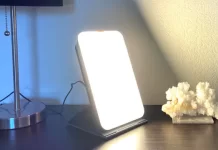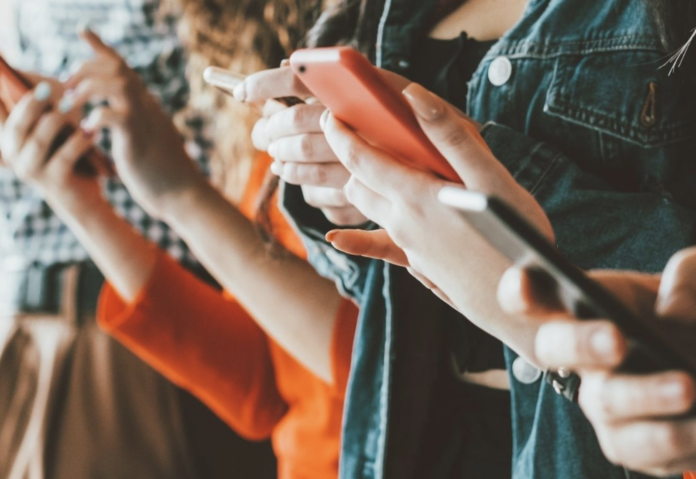There is no set time spent on social media, the frequency with which you check for updates, or quantity of posts you make that signals your use is becoming harmful because everyone is different. Instead, how social media affests your mental health will be linked to how much time you spend on social apps, as well as your reasons for using it, and how it affects your mood and other elements of your life.
Your use of social media, for instance, may be problematic if it makes you neglect in-person relationships, keeps you from completing tasks at work or school, or makes you feel resentful, angry, or depressed. In a similar vein, if you just use social media because you’re bored or lonely or because you want to post something to pique the jealousy or ire of others, it may not be the best use of your time.
The following are signs that your mental health may be being negatively impacted by social media:
Spending more time online than with friends in the real world. A lot of your offline social engagement is now replaced by using social media. You feel the need to continuously check social media, even while you’re out with friends, frequently motivated by feelings that others may be having more fun than you are.
Making negative comparisons to others on social media. You have a bad body image or low self-esteem. You might even engage in abnormal eating practices.
Taking part in dangerous activities to increase likes, shares, or favorable comments on social media. You engage in risky pranks, upload embarrassing content, engage in cyberbullying, use your phone while driving or in other dangerous situations, etc.
Unable to sleep properly. When you go to bed at night, when you get up in the morning, or perhaps both, do you check social media? Your sleep might be disturbed by the light from phones and other electronics, which can have a negative effect on your mental health.
Being a victim of cyberbullying. Or perhaps you are concerned that you have no control over what others post about you.
Being preoccupied with your feed at work. You experience pressure to post frequently about oneself, to receive feedback or likes on your postings, or to retweet and comment on your friends’ posts.
Lacking the time to think about your own life. You spend all of your free time on social media, which leaves you with little to no time to focus on your identity, your thoughts, or the reasons behind your actions—the things that help you develop as a person.
Signs of anxiety or sadness getting worse. After using social media, you feel more anxious, depressed, or lonely rather than as though it has helped to lessen bad emotions and improve your mood.
Changing your social media use to better your mental health
#1 – Reduce time online
Studies suggeest that reducing social media use to 30 minutes a day resulted in a significant reduction in levels of anxiety, depression, loneliness, sleep problems, and FOMO. But you don’t need to cut back on your social media use that drastically to improve your mental health. The same study concluded that just being more mindful of your social media use can have beneficial results on your mood and focus.
Even if cutting back on our social media use for even 30 minutes a day—let alone a full “social media detox”—might not be a realistic goal for many of us, we can still benefit from doing so. For the majority of us, that means using our smartphones less frequently.
These pointers can be useful:
- Utilize an app to keep tabs on how much time you spend daily on social media. After that, decide by how much you want to lower it.
- When you’re driving, in a meeting, at the gym, eating dinner, interacting with friends in person, or spending time with your children, turn off your phone.
- Disable the notifications for social media. The incessant buzzing, beeping, and dinging of your phone informing you of new messages is difficult to ignore. You may restore control of your time and attention by turning off your notifications.
- Limits tests. Limit your phone checks to once every 15 minutes if you have a habit of doing so every few minutes. then every half-hour, then every hour. There are applications that can automatically restrict your phone access times.
- Don’t bring your phone inside the restroom.
- Never use a tablet or phone in bed. Devices should be turned off and left to charge overnight in a different room.
- If you want to exclusively check Facebook, Twitter, and other social media sites from your tablet or computer, try deleting social media apps from your phone. Try eliminating one social media app at a time to determine how much you actually miss it if this seems like a too-dramatic step.
#2 – Shift your focus
Many of us use social media only out of habit or to mindlessly pass the time when we’re bored. However, by concentrating on your reason for using social media, you can not only cut down on the amount of time you spend there, but also enhance your experience and steer clear of many of its drawbacks.
Your experience on social media will probably be very different if you log on out of boredom, to see how many people liked a previous post, or to see if you’re missing out on anything than if you’re accessing it to find specific information, check in on a friend who’s been sick, or share new photos of your kids with family, for example.
The next time you use social media, take a moment to consider why you’re doing it:
Are you replacing real life with social media? Is there a more wholesome alternative to your use of social media? Invite a pal out for coffee instead if you’re feeling lonely, for instance. Do you feel depressed? Go for a stroll or to the gym. Bored? Embark on a fresh interest. While social networking may be quick and handy, there are frequently better, more efficient ways to sate a hunger.
Do you ever feel unsatisfied with your life after checking social media? By concentrating on what you have rather than what you lack, you can combat the effects of FOMO. When you feel that something greater is lacking from your life, make a list of all the things you have going for you, then read it back. Also, keep in mind that nobody’s life is truly as flawless as it appears on social media. Even if we decide not to post it online, we all experience heartbreak, self-doubt, and disappointment.
Do you utilize social media actively or only passively? On social media, browsing through postings or anonymously watching user interactions doesn’t provide a genuine sense of connection. It might even make people feel more alone. However, taking part actively will increase your interaction with other people.
#3: Spend more time with friends in the “real world”
To be content and healthy, we all require the companionship of others in person. When used effectively, social media is an excellent tool for fostering in-person connections. There are many ways to forge meaningful connections without relying on social media, though, if you’ve let online connections take the place of in-person friendships in your life.
Set aside time every week to communicate with friends and family in person. Make an effort to make it a regular gathering where you always turn off your phones.
Reach out to acquaintances if you don’t feel like you have somebody to spend time with. Be the one to start the conversation because a lot of other individuals have the same anxiety you do when making new friends. Invite a coworker to lunch, or ask a friend from school or your neighbor to join you for coffee.
Reach out to an old buddy (or an internet acquaintance) if you’ve ignored your in-person relationships and make plans to meet up. Offer to go on errands or exercise together if you both have hectic schedules.
Avoid letting your social awkwardness get in the way. There are tried-and-true methods to get over shyness and form relationships.
Join a group. Find a pastime, a creative project, or a physical activity you like, and join a community of like-minded people who gather frequently.
Engage with unrelated people. Look up from your screen and make eye contact with folks you pass on the street or in a coffee shop or grocery store. You can feel better by simply grinning or saying hello, and you never know where it can lead.
#4 – Feel gratitude for what you DO have
Feeling and expressing thankfulness for the significant aspects of your life can provide a welcome respite from the resentment, hostility, and unhappiness that social media can occasionally breed.
Take some time to think. Consider utilizing a thankfulness app or keeping a gratitude journal. Keep a list of all your wonderful experiences and blessings, as well as the things and people you’d miss if they disappeared overnight. You can even express your thankfulness on social media if you like to gripe or post bad things, but you might find that solitary reflection away from the prying eyes of others is more beneficial.
Do some volunteer work.Humans are hard-wired to seek out social connections, just as we are hard-wired to help others. Helping others or animals makes you feel happier and more appreciative while also improving your neighborhood and advancing a cause that matters to you.
Engage in mindfulness. Living in FOMO and negatively comparing yourself to others keeps you focused on life’s setbacks and difficulties. You’re preoccupied with the “what ifs” and “if onlys” that keep you from living the life you see on social media rather than being totally present. You can learn to live more in the present by engaging in mindfulness practices, which can also help you cope with FOMO and enhance your general mental health.






























